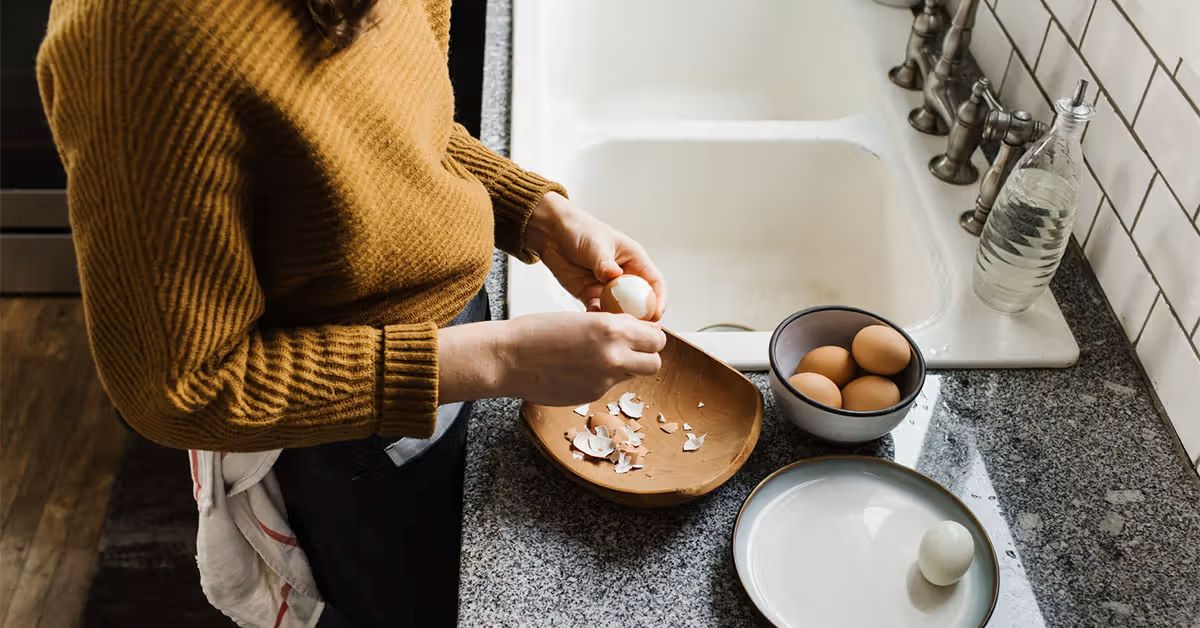

Articles
How To Store Hard Boiled Eggs Peeled
Modified: August 16, 2024
Learn the best way to store hard-boiled eggs that have been peeled in this informative article. Keep your eggs fresh and ready-to-eat with these simple storage tips.
(Many of the links in this article redirect to a specific reviewed product. Your purchase of these products through affiliate links helps to generate commission for Storables.com, at no extra cost. Learn more)
Introduction
Hard boiled eggs are a nutritious and versatile food that can be enjoyed in a variety of ways. Whether you want to have them as a quick snack, use them in salads or sandwiches, or make a delicious deviled eggs dish, having peeled hard boiled eggs ready to go can save you time and effort in the kitchen.
But how do you store hard boiled eggs that have already been peeled? Can you simply throw them in a container and toss them in the fridge? In this article, we will guide you through the process of properly storing peeled hard boiled eggs to keep them fresh and safe to eat.
There are a few important steps to follow to ensure your peeled hard boiled eggs stay fresh and maintain their quality. We will help you understand how to cool the eggs, peel them without damaging the egg whites, prepare an appropriate container, label and date it, and ultimately store the eggs in the refrigerator.
So, if you want to keep your peeled hard boiled eggs fresh and ready to enjoy, let’s dive into the step-by-step process!
Key Takeaways:
- Keep peeled hard boiled eggs fresh by cooling, peeling, and storing them properly. Label and date the container, and refrigerate the eggs to ensure safety and optimal freshness.
- Properly stored peeled hard boiled eggs can last 5 to 7 days in the refrigerator. Enjoy the convenience of having them ready for quick snacks, salads, or deviled eggs dishes.
Read more: How To Store Peeled Hard Boiled Eggs
Step 1: Cooling the Hard Boiled Eggs
The first step in storing peeled hard boiled eggs is to ensure they are properly cooled before peeling them. This helps in preventing the egg white from sticking to the shell and makes the peeling process much easier.
After boiling the eggs, remove them from the hot water and transfer them to a bowl of ice water. Let the eggs sit in the ice water for about 5-10 minutes. This rapid cooling process helps in halting the cooking process and allows the eggs to cool down quickly.
Alternatively, you can also place the eggs under cool running water for a few minutes until they are completely cooled.
During the cooling process, you may notice that the eggs develop small cracks on their surface. This is normal and doesn’t affect the quality of the eggs. However, it’s important to handle the eggs with care to prevent any further cracking.
Once the eggs are sufficiently cooled, you can proceed to the next step – peeling the hard boiled eggs.
Step 2: Peeling the Hard Boiled Eggs
Peeling hard boiled eggs can sometimes be a delicate process, but with the right technique, it can be a breeze. Here’s how to peel hard boiled eggs without damaging the egg whites:
- Gently tap the rounded end of the egg on a hard surface to create a small crack.
- Rotate the egg and tap the other end to create another crack.
- Hold the egg under running water or submerge it in a bowl of water to help loosen the shell.
- Starting at the cracked end, carefully peel away the shell, moving your fingers under the thin membrane between the shell and the egg white.
- Continue peeling, keeping the egg under running water if needed, until the entire shell is removed.
Remember to be gentle while peeling to avoid tearing into the egg white. If you encounter any stubborn pieces of shell, try using a spoon or your fingernail to gently lift them off.
It’s essential to peel the eggs as soon as they have cooled down, as the shell tends to stick more firmly to the egg white when left for longer periods.
Once all the eggs are peeled successfully, you can move on to the next step – preparing the storage container.
Step 3: Preparing the Storage Container
When it comes to storing peeled hard boiled eggs, choosing the right container is crucial to maintain their freshness and prevent any cross-contamination. Follow these steps to prepare the storage container properly:
- Start by selecting a clean and airtight container that is large enough to hold all the peeled eggs without overcrowding them.
- Wash the container with warm soapy water and rinse it thoroughly to remove any dirt or residues that may be present.
- Dry the container completely before using it to prevent any moisture from causing the eggs to spoil.
- If you prefer, you can line the container with a paper towel or place a small piece of plastic wrap at the bottom to help absorb any excess moisture.
Remember to choose a container that is not too shallow, as the eggs should be stored in a single layer to prevent them from getting damaged or crushed.
Once the storage container is ready, you can move on to the next step – storing the peeled hard boiled eggs.
Store peeled hard boiled eggs in an airtight container in the refrigerator. Place a damp paper towel in the container to help keep the eggs moist. They should be consumed within 1 week for best quality.
Step 4: Storing Peeled Hard Boiled Eggs
Now that you have properly peeled the hard boiled eggs and prepared the storage container, it’s time to store the eggs to keep them fresh and safe to eat. Follow these steps:
- Place the peeled hard boiled eggs gently into the prepared storage container.
- Make sure not to overcrowd the eggs, as they need enough space to prevent any damage.
- If you have a large number of peeled eggs, it’s best to use multiple containers or divide them into smaller batches.
- For added protection, you can place a small piece of damp paper towel on top of the eggs to help maintain their moisture.
It’s important to note that peeled hard boiled eggs are more perishable than unpeeled eggs, as the protective shell has been removed. Therefore, it’s essential to handle them with care and store them properly to maintain their freshness.
Once the eggs are stored in the container, you’re almost done. The next step involves properly labeling and dating the container to keep track of their freshness.
Read more: How To Store Hard-Boiled Eggs
Step 5: Properly Labeling and Dating the Container
Labeling and dating the container is an important step when storing peeled hard boiled eggs. It helps you keep track of their freshness and ensures that you consume them within a safe time frame. Follow these guidelines:
- Take a permanent marker or a label and write the date of when the eggs were boiled on the container.
- It’s best to use a clear and legible format, such as “MM/DD/YYYY,” to prevent any confusion.
- If you have multiple containers or batches of eggs, label each one with the corresponding date.
By labeling the container, you have a clear record of when the eggs were boiled, allowing you to keep track of their freshness. It’s recommended to consume the peeled hard boiled eggs within 5 to 7 days to ensure their quality and safety.
With the container properly labeled and dated, it’s time to move on to the final step – refrigerating the eggs.
Step 6: Refrigerating the Eggs
After properly preparing and labeling the container, the final step is to refrigerate the peeled hard boiled eggs. Refrigeration is crucial to maintain their freshness and prevent any bacterial growth. Follow these steps:
- Place the labeled and dated container of peeled eggs in the refrigerator.
- Make sure to store the eggs on a shelf rather than in the door, as the temperature on the door fluctuates more, leading to potential spoilage.
- Keep the eggs away from strong-smelling foods to prevent any odors from being absorbed.
- Try to maintain a consistent refrigerator temperature of 40°F (4°C) or below to ensure optimal freshness.
It’s important to note that the peeled hard boiled eggs should be stored in the refrigerator at all times, even if you’re planning to use them later in the day. This helps in preserving their quality and minimizing the risk of any foodborne illnesses.
Remember to always wash your hands before handling the eggs and to use clean utensils when serving or using the eggs in recipes. This helps in preventing any potential contamination and ensures your safety.
By following these steps and guidelines, you can safely store your peeled hard boiled eggs in the refrigerator and enjoy them within a recommended time frame.
Conclusion
Storing peeled hard boiled eggs doesn’t have to be a daunting task. By following the steps outlined in this article, you can ensure that your eggs stay fresh, flavorful, and safe to eat.
Cooling the eggs before peeling them is essential for easy and smooth peeling. Take your time to gently remove the shells, being careful not to damage the egg whites in the process.
Preparing the storage container is equally important. Choose a clean, airtight container and line it with a paper towel or plastic wrap to absorb excess moisture.
Once the eggs are peeled and the container is prepared, it’s time to store them. Take care not to overcrowd the eggs in the container and consider placing a damp paper towel on top to preserve their moisture.
Labeling and dating the container ensures that you keep track of the eggs’ freshness. Consume the peeled hard boiled eggs within 5 to 7 days to ensure optimum quality and safety.
Lastly, refrigerate the eggs promptly. Store them on a shelf in the refrigerator, maintaining a consistent temperature of 40°F (4°C) or below.
By following these steps, you can enjoy the convenience of having peeled hard boiled eggs ready to go whenever you need them. Whether it’s for a quick snack, a protein-packed addition to your salad, or a delicious deviled eggs dish, properly storing peeled hard boiled eggs will ensure that they remain fresh, tasty, and safe for consumption.
So, the next time you have leftover hard boiled eggs or want to prepare a batch in advance, use these guidelines to store them properly and enjoy their goodness anytime you desire.
Frequently Asked Questions about How To Store Hard Boiled Eggs Peeled
Was this page helpful?
At Storables.com, we guarantee accurate and reliable information. Our content, validated by Expert Board Contributors, is crafted following stringent Editorial Policies. We're committed to providing you with well-researched, expert-backed insights for all your informational needs.
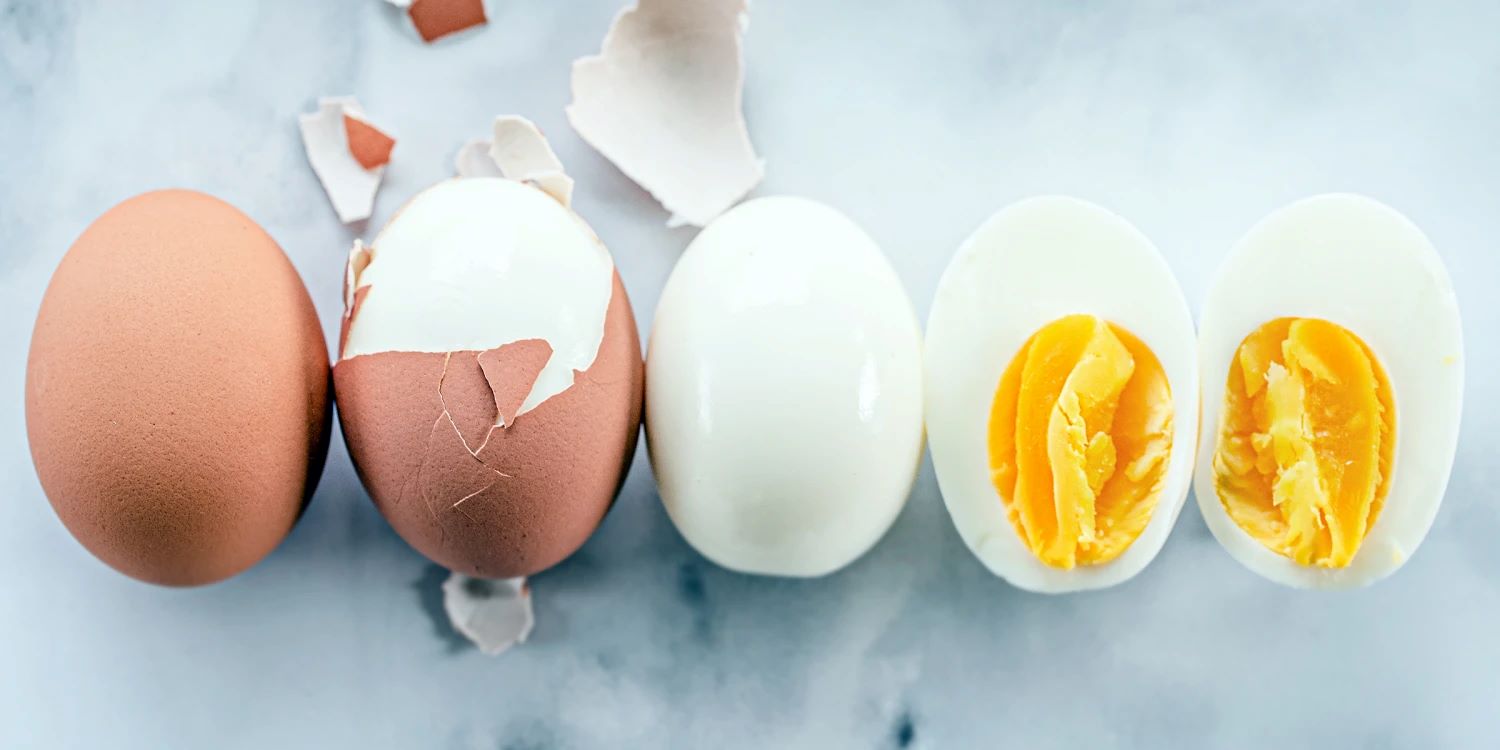

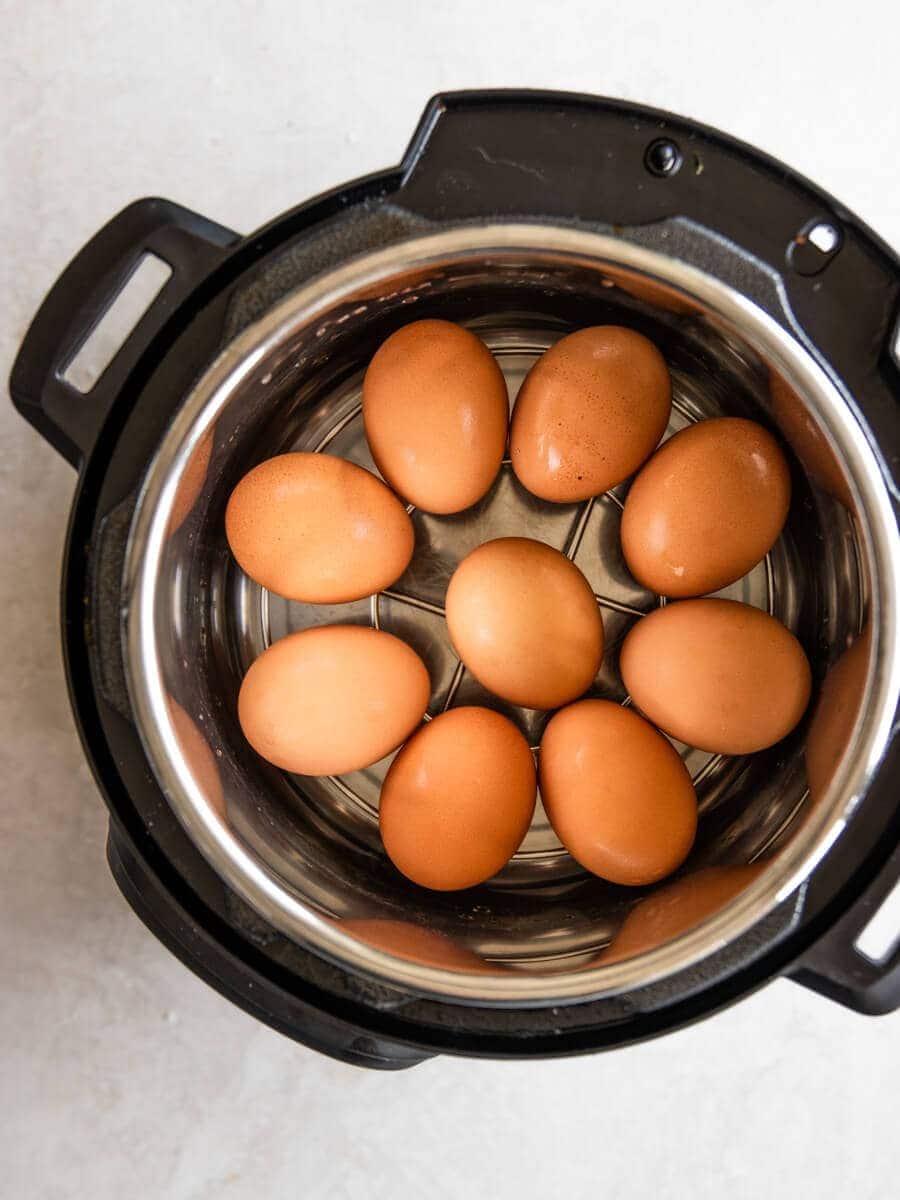
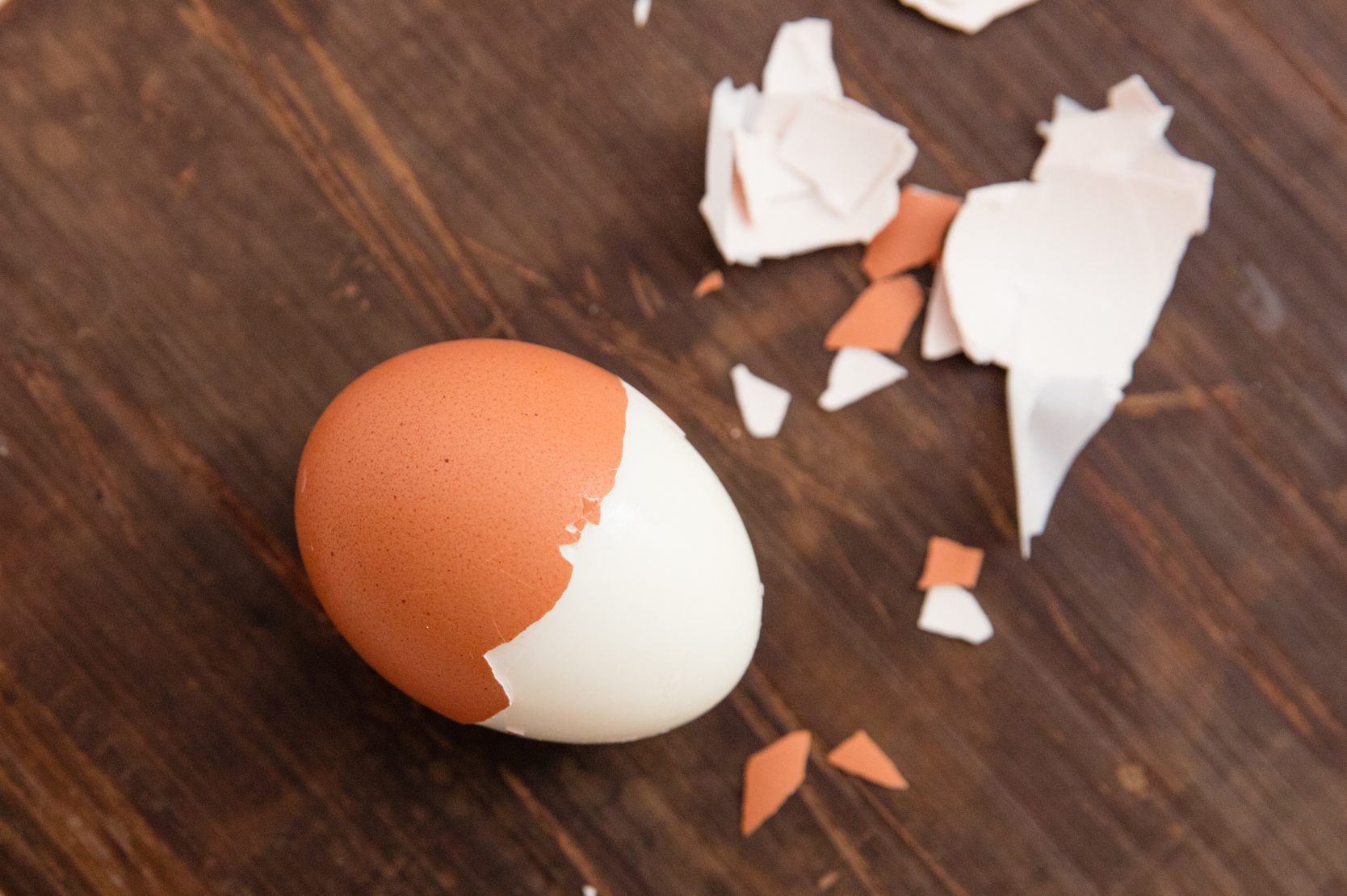


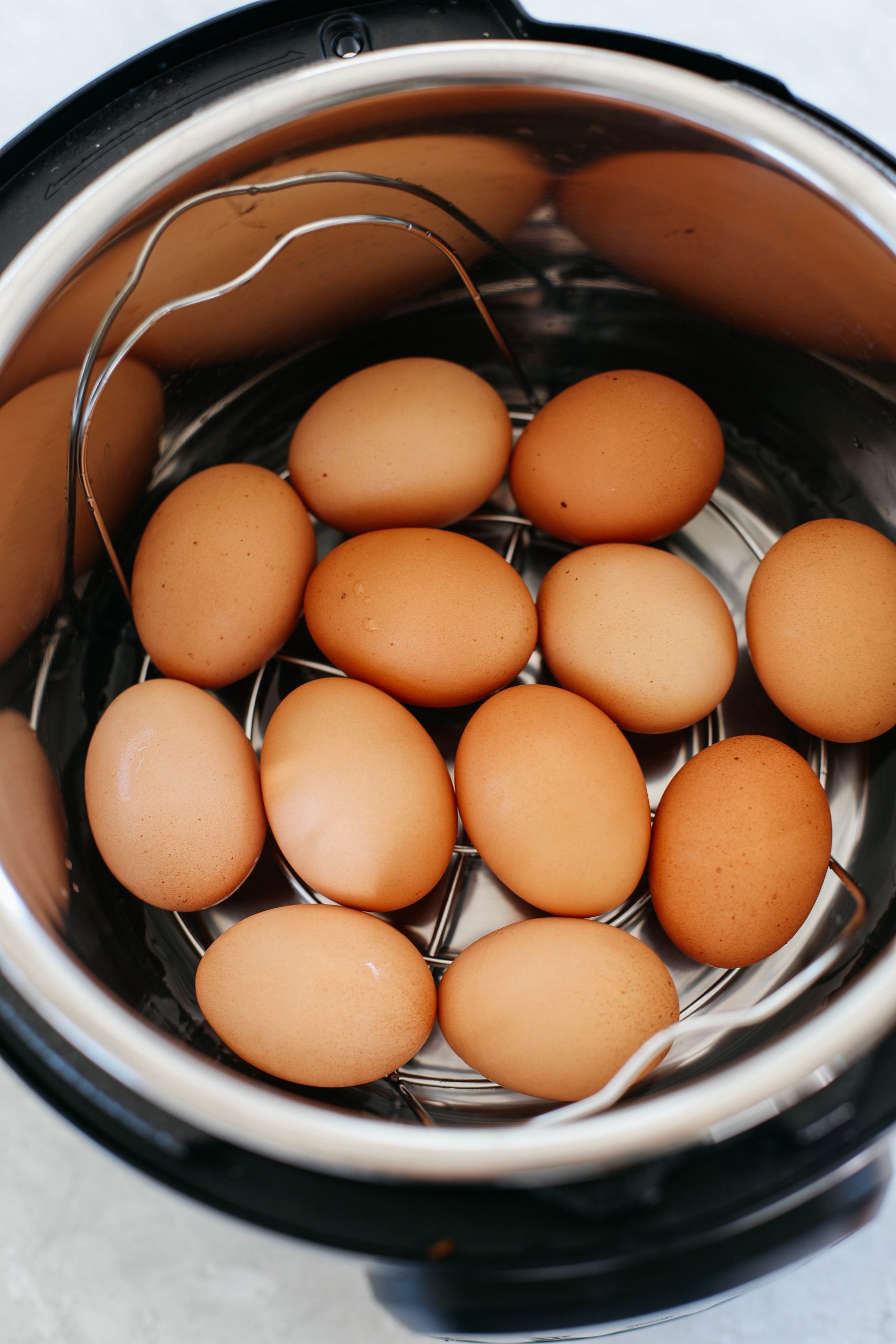
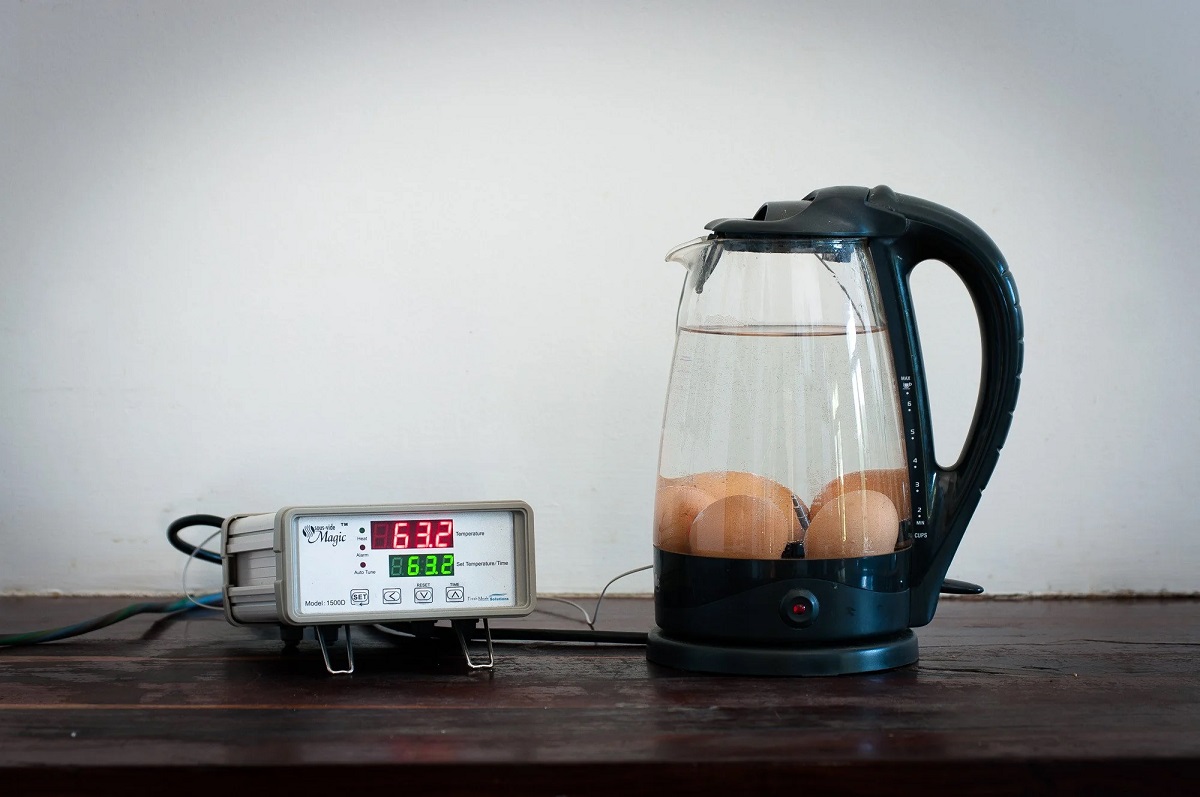
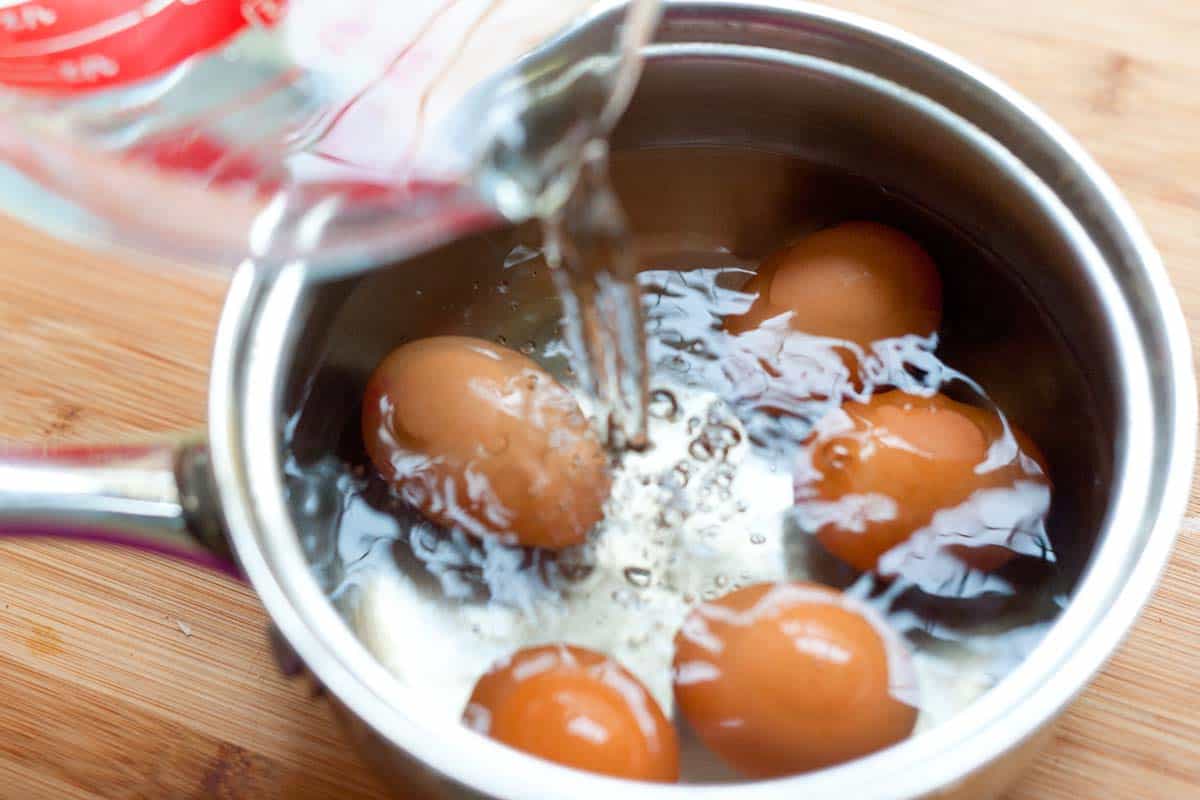
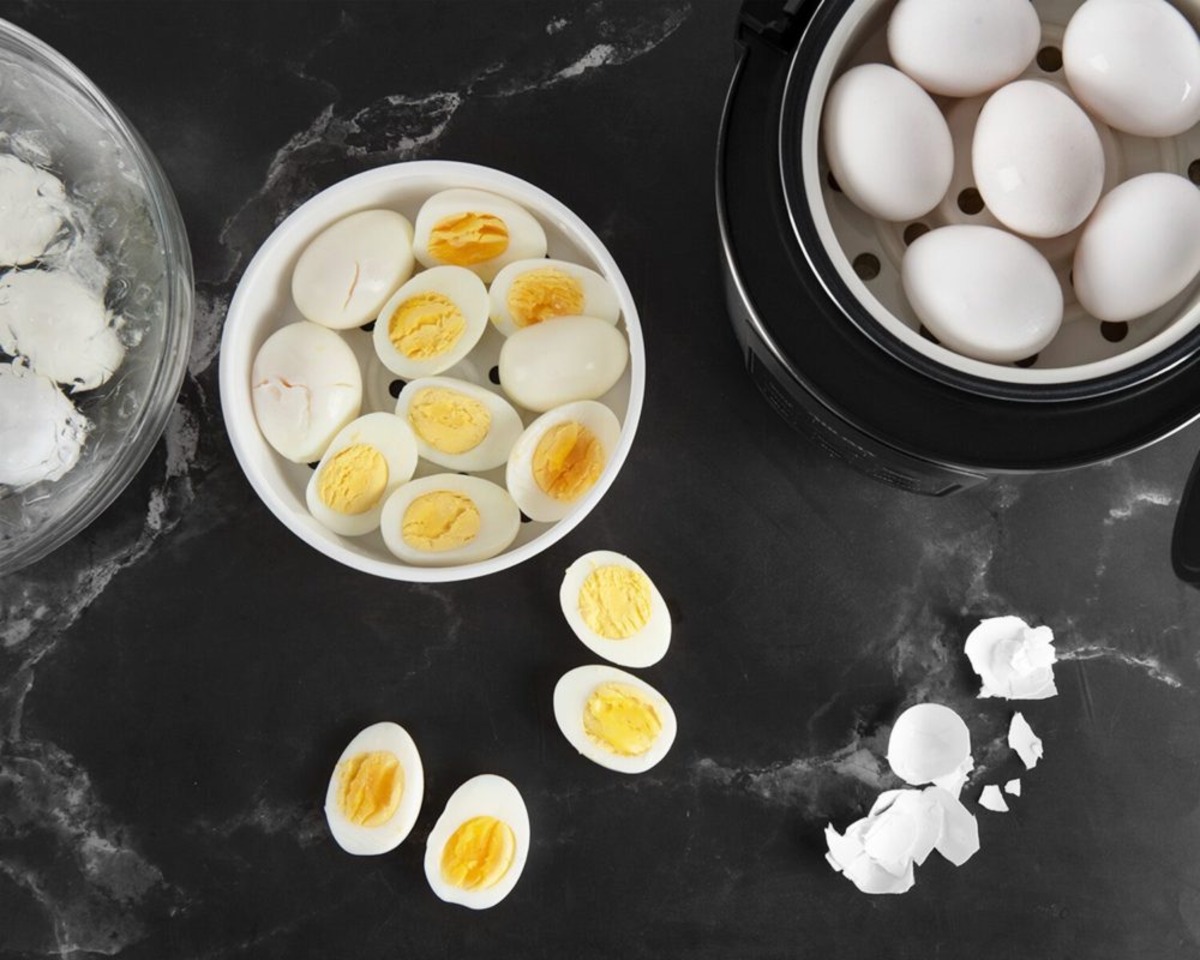

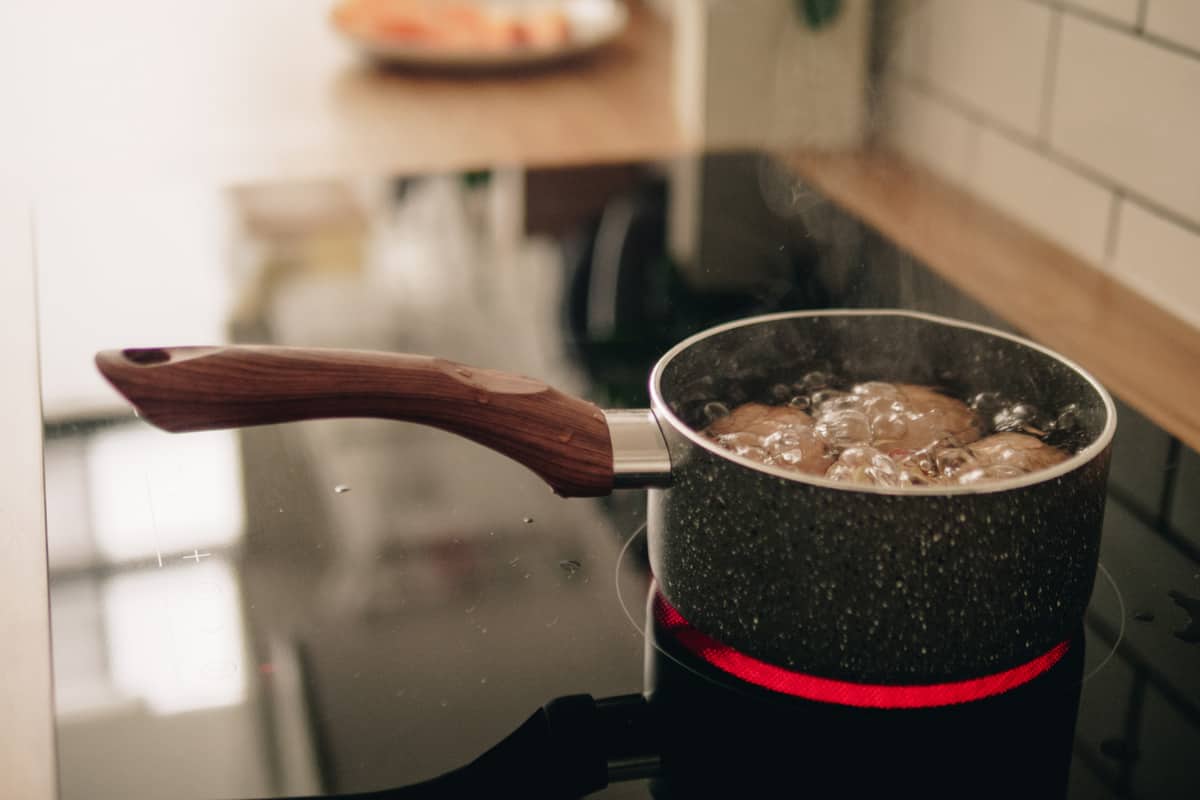
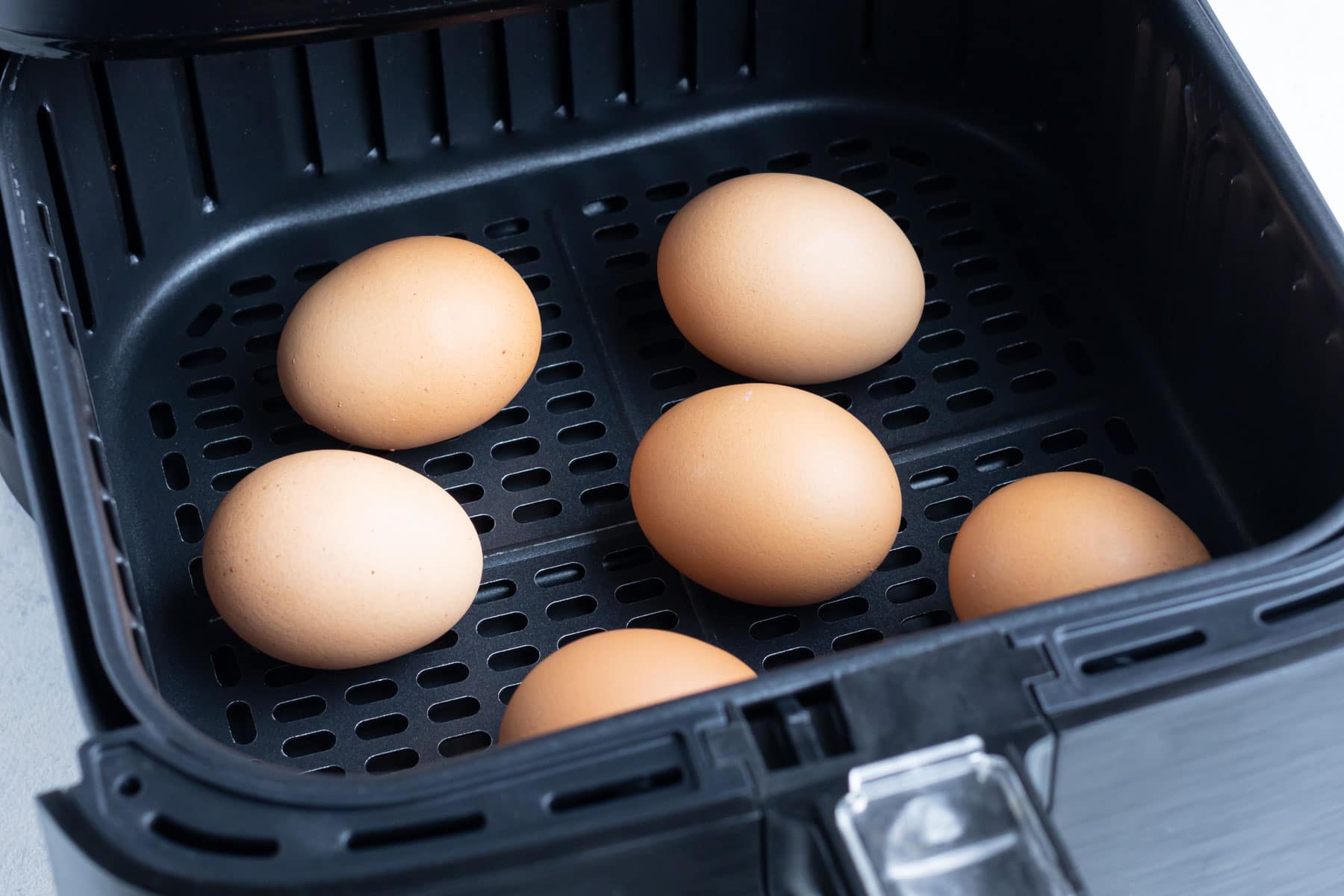
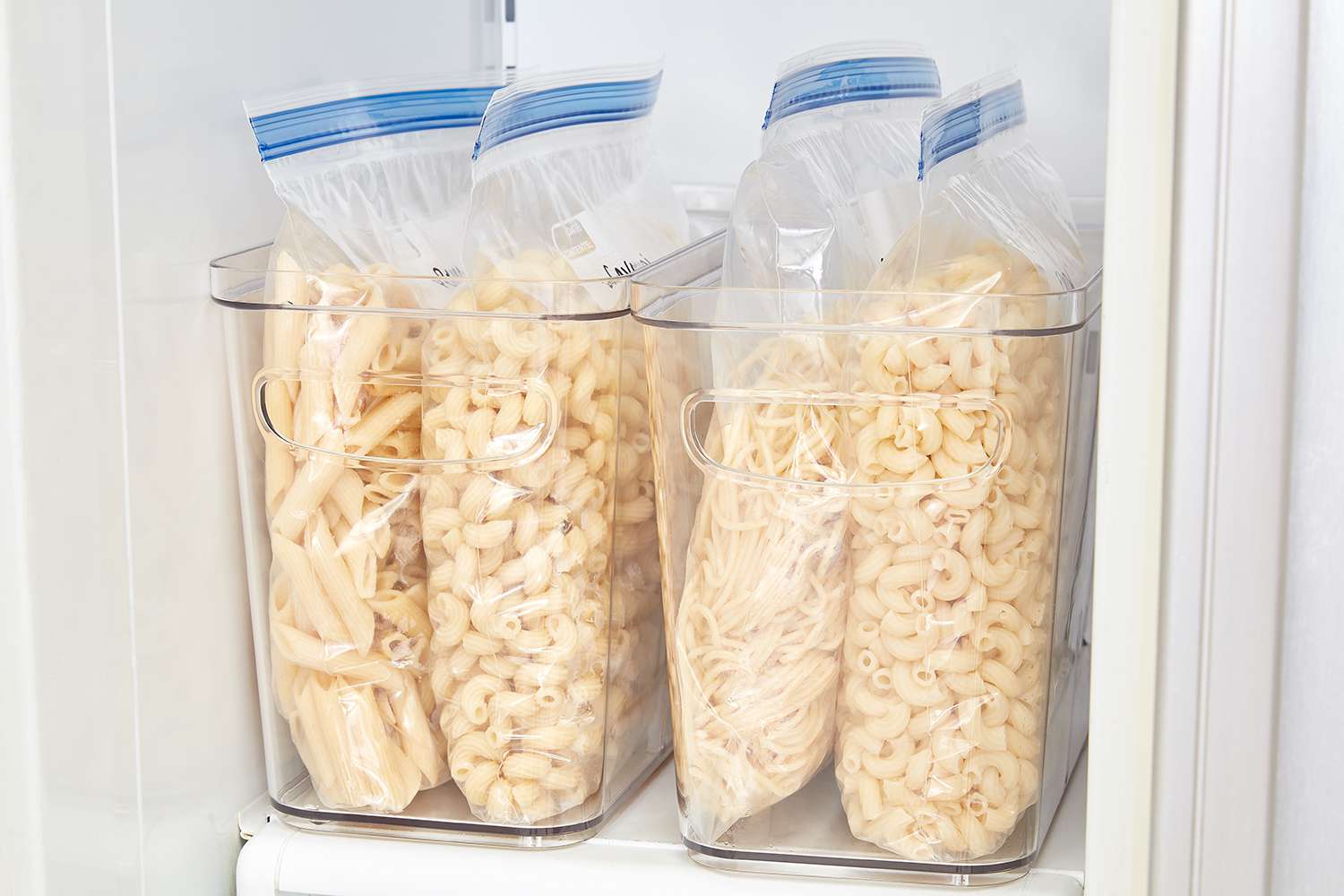

0 thoughts on “How To Store Hard Boiled Eggs Peeled”